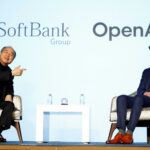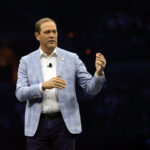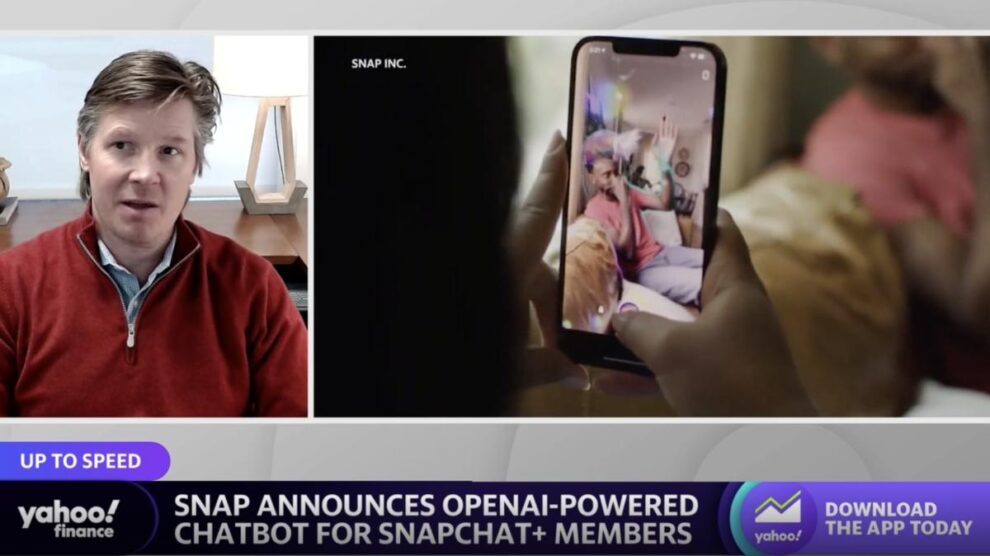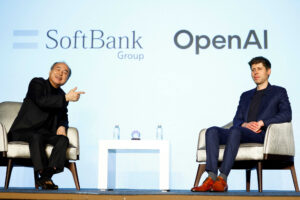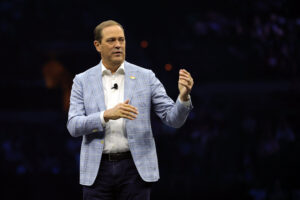Jefferies Senior Analyst Brent Thill dissects the long-term A.I. trends being adopted by the tech industry, Snapchat’s entrance into the A.I. race, and how competition between Microsoft and Google’s A.I. investments continues to tighten.
Video Transcript
JARED BLIKRE: All right, and let’s get you up to speed on the AI arms race. Snap shares moving. Well, they were moving higher, and they’re still moving higher but by just a little bit, about 73 basis points. That’s after announcing today that they are entering the chat wars with a new OpenAI-powered bot for it’s Snapchat Plus– excuse me, Snapchat Plus subscribers.
Joining us now with more on the AI hype is Brent Thill. He is a Jefferies senior analyst. Brent, always great to see you here. I want to direct everybody’s attention to the YFi Interactive, which is an excerpt from the company’s prospectus when they went public all these years ago. And it does say Snap is a camera company. That was a fad that they happened to jump on that bandwagon at the time. Not a lot came of that. Just wondering how deeply and how seriously are they taking the AI bandwagon this time.
BRENT THILL: Yeah, I think– look, every tech company is taking it serious, and it’s being woven into the fabric of every major technology company we cover. So when you log on to Snap, you’re going to be able to engage with a chat bot versus, you know, just seeing static news. When you log into your Microsoft PowerPoint, if you need a presentation built, it’ll ask you how can I help you? and what can I do? To Google– to every major tech company, Amazon, Apple.
So, I mean, look, it’s not a surprise. I don’t think this changes the tone for them specifically, but I think ultimately everyone is trying to follow Microsoft’s PR win, which they won the PR battle out of the gate with their announcements, and now everyone’s playing catch up.
So we expect the AI hype to continue. We do believe some of it’s hype today. And we think ultimately, it is real, though. It’s not total hype, but it’s going to take time for this to produce revenue and profits for a lot of these tech companies.
But make no mistake. Everyone in tech is chasing it, and if they don’t have an AI strategy, they’re going to be left on the side of the highway and get passed quickly. So again, I look at this, and I think a lot of this is initial hype, and the real meat of these announcements is still yet to come in many, many quarters, if not years, out from now.
SEANA SMITH: Brent, you mentioned the hype here a couple of times. Do you think this excitement, though, around AI, is that justified up until this point? And you mentioned the fact that Microsoft now has this clear lead with the investment in OpenAI with ChatGPT. What about its competitors, Google, the ability there to catch up to Microsoft?
BRENT THILL: Yeah, I look at the other way around. I mean, I really think that Microsoft is so far behind. I mean, look at the market share of Google versus Microsoft. And so when I say, you know, I think Microsoft won the PR battle, again, they have to prove the longevity of Bing.
We ran a survey of a thousand consumers, and 4% said it was the default search. That means 96% were using Google. So I wouldn’t call that catching up. I’d say that Microsoft’s way behind, but ultimately that 4% is going into the low teens.
And so again, this still has a long way to go. I do not believe Google is going to be left on the side of the highway on the AI race. We think that ultimately they have a great position.
Remember, AI can’t work unless you have a lot of users and a lot of content, and they have more users and content than Microsoft. And so if you think about ultimately their ability to play catch up and the PR side of this, I think they can do it. And I think from a technology perspective, they will do it.
Right now, Wall Street is not giving Google credit. Everyone is saying Microsoft wins. Google loses. It’s that simple. I think that’s ridiculous. We’ve seen this in past hype waves when Steve Jobs was alive saying Adobe Flash is dead. Everyone thought Adobe was dead, and Adobe went from $30 to $700 in terms of the stock.
So I like Google here. I think it’s a great buy. I think the death to Google is greatly exaggerated by all this AI hype.
And again, remember, you know, there are, like, many, many, many companies other than Microsoft that are using OpenAI to embed in the fabric of their own applications. So you have to say, well, is this Microsoft’s technology or is it a partner’s technology? And last time I checked, Google is building a lot of this organically.
So I’m a huge fan of Google here. I think the reaction has been greatly overexaggerated where they’re going to end up.
SEANA SMITH: So then, Brent, maybe the better way to ask that question would have been how much will this help Microsoft then down the line? Because I was going through the results of your survey, and it was pretty fascinating. Just I know it was a small number of people who use Bing, but those who had tried the new Bing told you that they would make it their default search engine. Those who tried the new Bing, 86% said that they were very impressed. How much then do you see this potentially helping Microsoft on the search-engine front?
BRENT THILL: No doubt this helps Microsoft, right? They have no share, so it puts them on the map on terms of the share. So you have to look at it from Microsoft, two angles, consumer and enterprise. On the consumer side, they badly need a kickstart. This will help them.
Again, remember many of the consumer products that Microsoft has launched have been duds– the Zune in music, their advertising business. They’ve written off many past acquisitions. What happened to Nokia on the handset side? Are they in the mobile-phone war? You know, they try, but they have not really had great success.
On the enterprise side, I’m very bullish. And again, I was a Microsoft developer. That’s how I got into this business. I am huge fan of what they can do in enterprise AI, which is company launches earnings like Workday tonight. We use the AI engine on Azure to basically take the key numbers out, compare and analyze, and we can do it quicker, faster, and make good decisions. I’m really bullish about that. That’s still a long ways off.
So I think ultimately you have to basically separate and say not all AI is created equal. Microsoft’s going to have no doubt a win on the consumer side because they have no share, but I think the bigger win’s going to come in the next several quarters if not years on the enterprise side where I’m more bullish. That’s their fastball. That’s what they’re known for. And we are testing their products internally, and we are really excited about what it could do for us in our own jobs.
And so, again, I separate it, and I think it’s kind of a tale of two cities, if you will. I’m not negative on Microsoft. I think the consumer side will do well, again, just because they haven’t really been, you know, on the map.
But again, I think you have to go back to, do you need a five-day Tokyo trip planned by Bing? And I think the answer is no, I don’t. Do I need basic weather? Do I need basic things? Google is giving that to you today.
SEANA SMITH: Well, a five-day trip plan, it doesn’t sound bad. It would save people a heck a lot of time. But, Brent, I definitely get what you were saying. Brent Thill, always great to have you. We’ll look forward to having you back on the show again soon.


